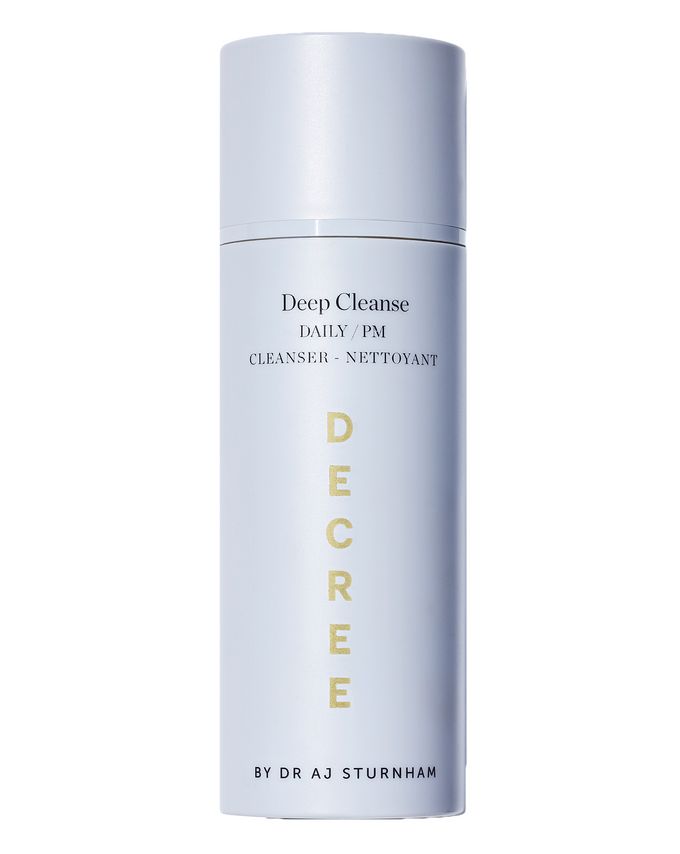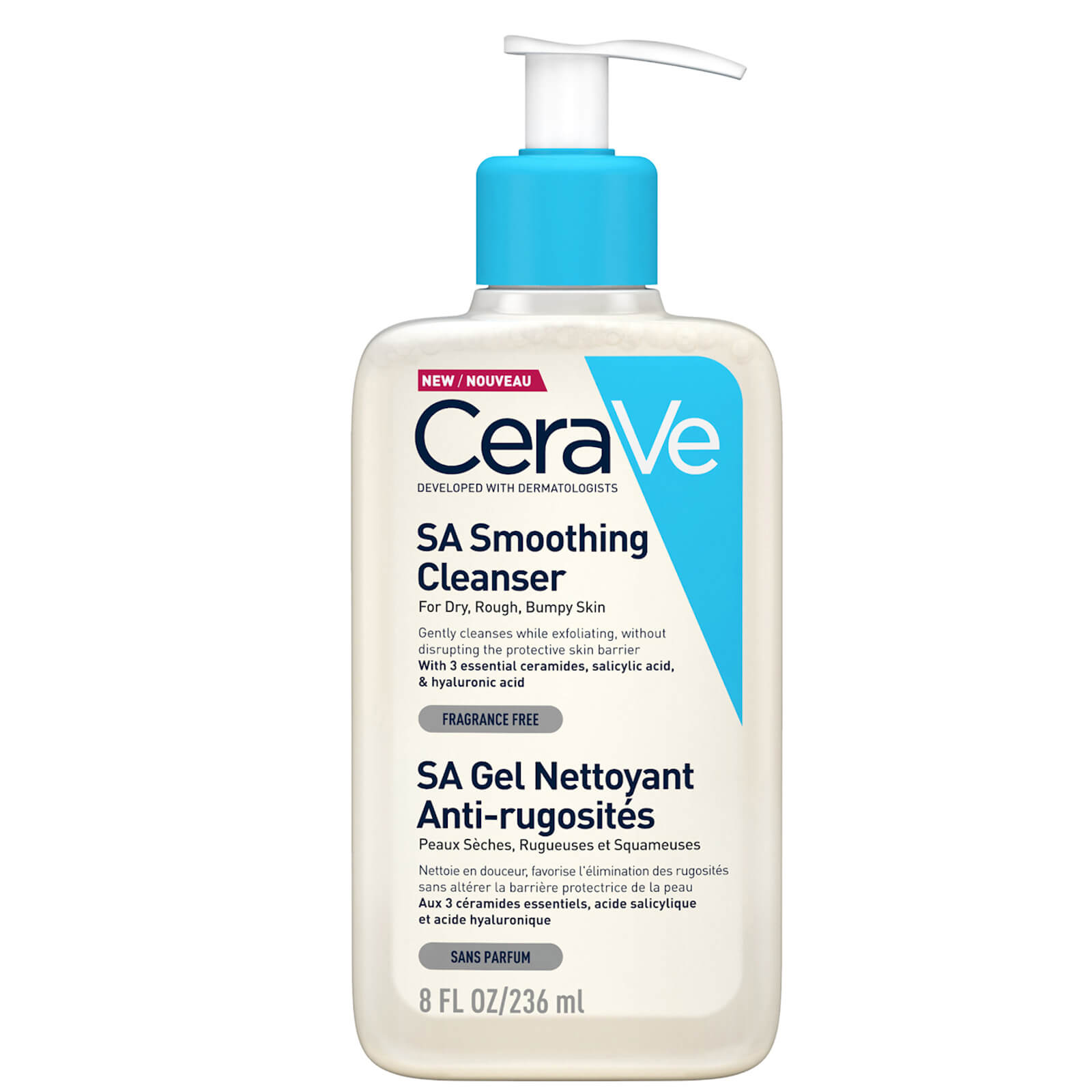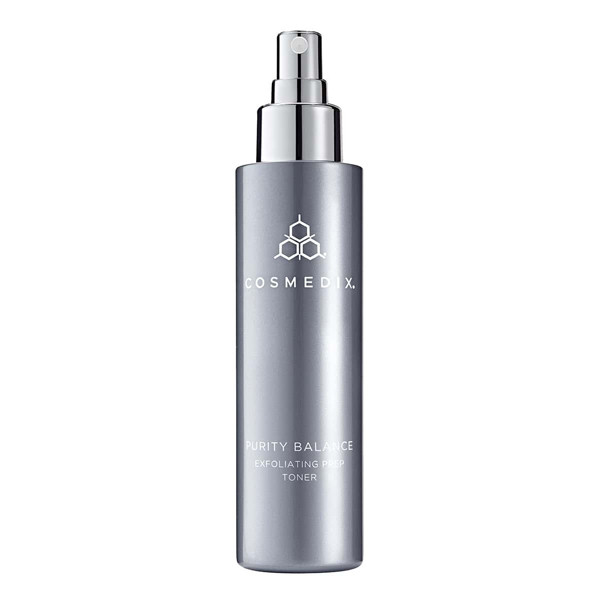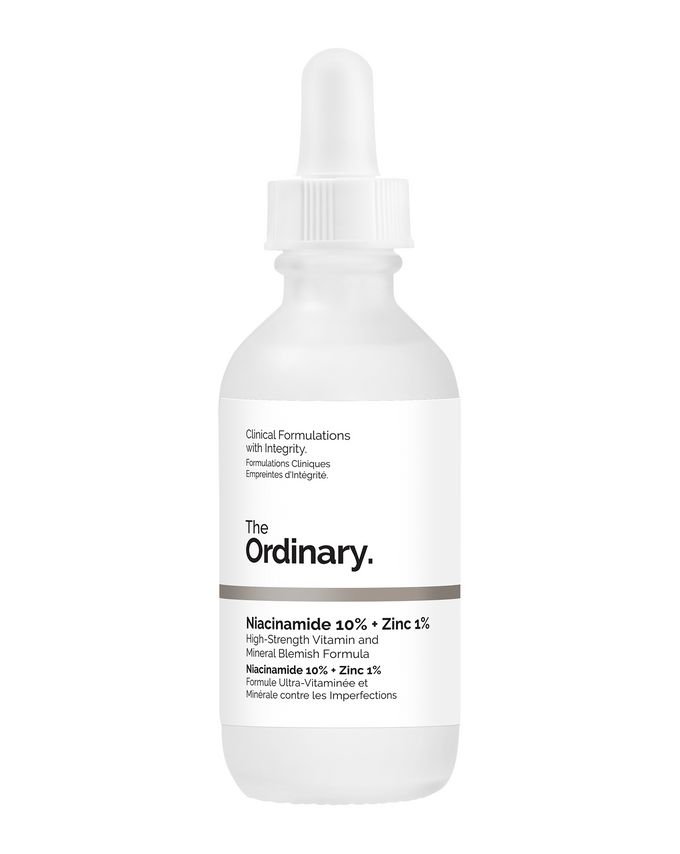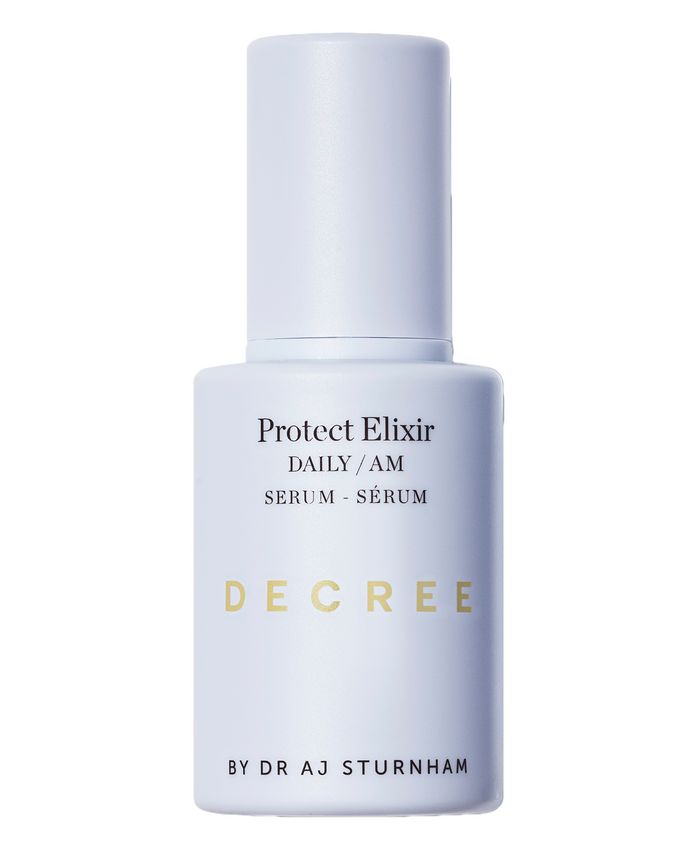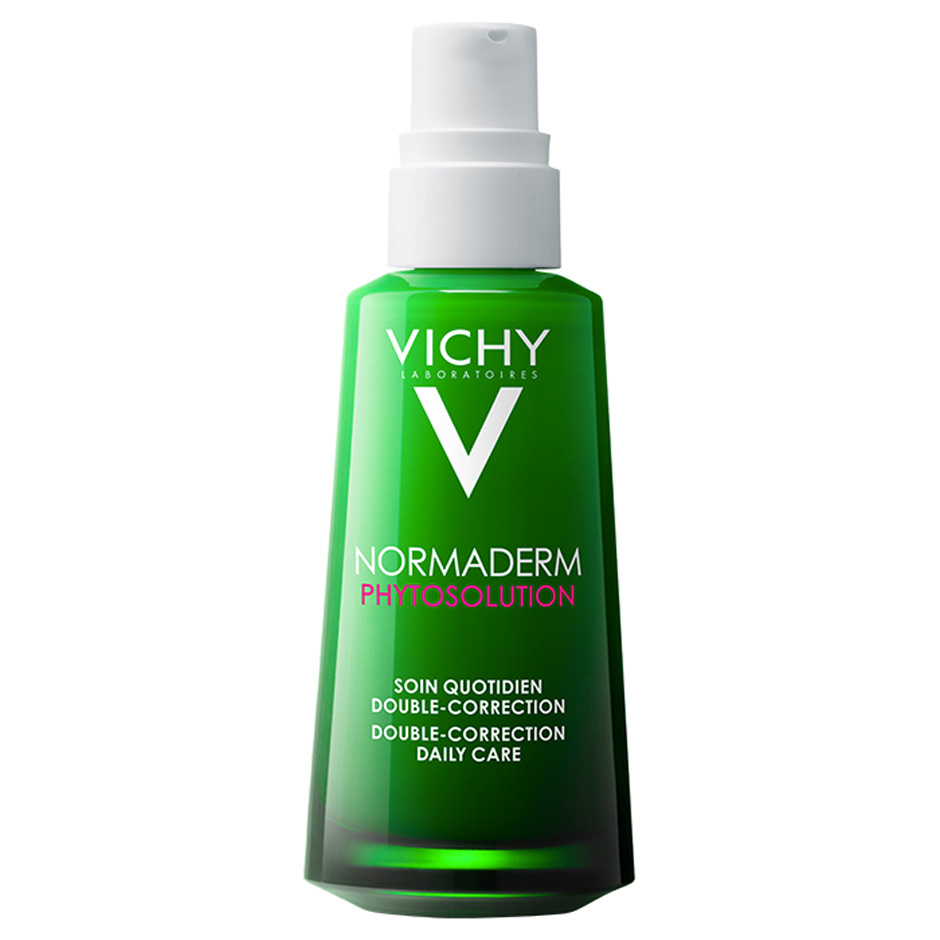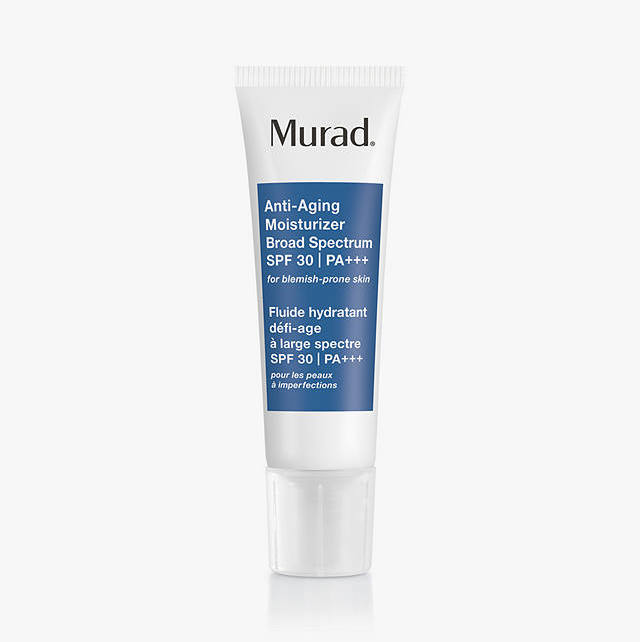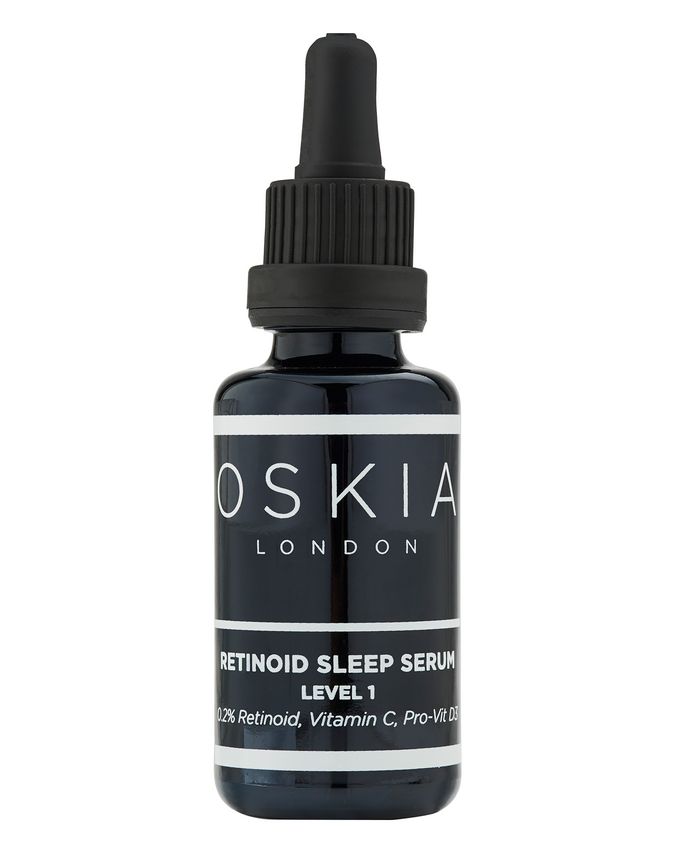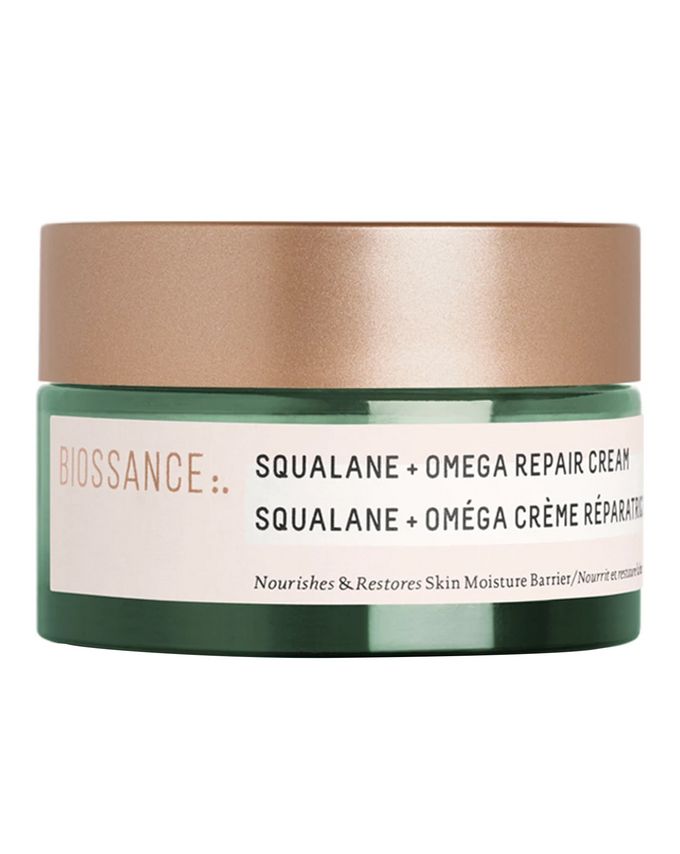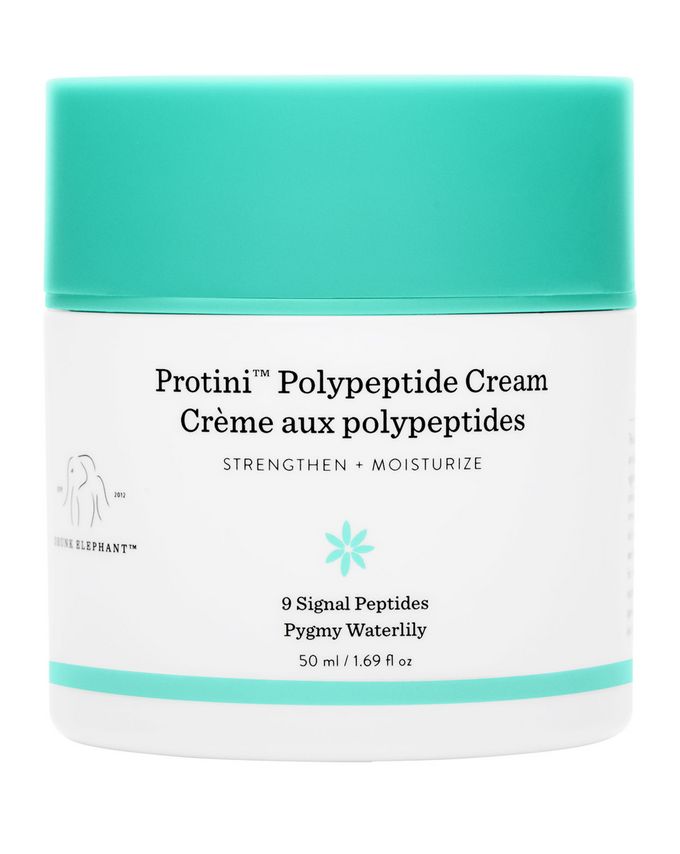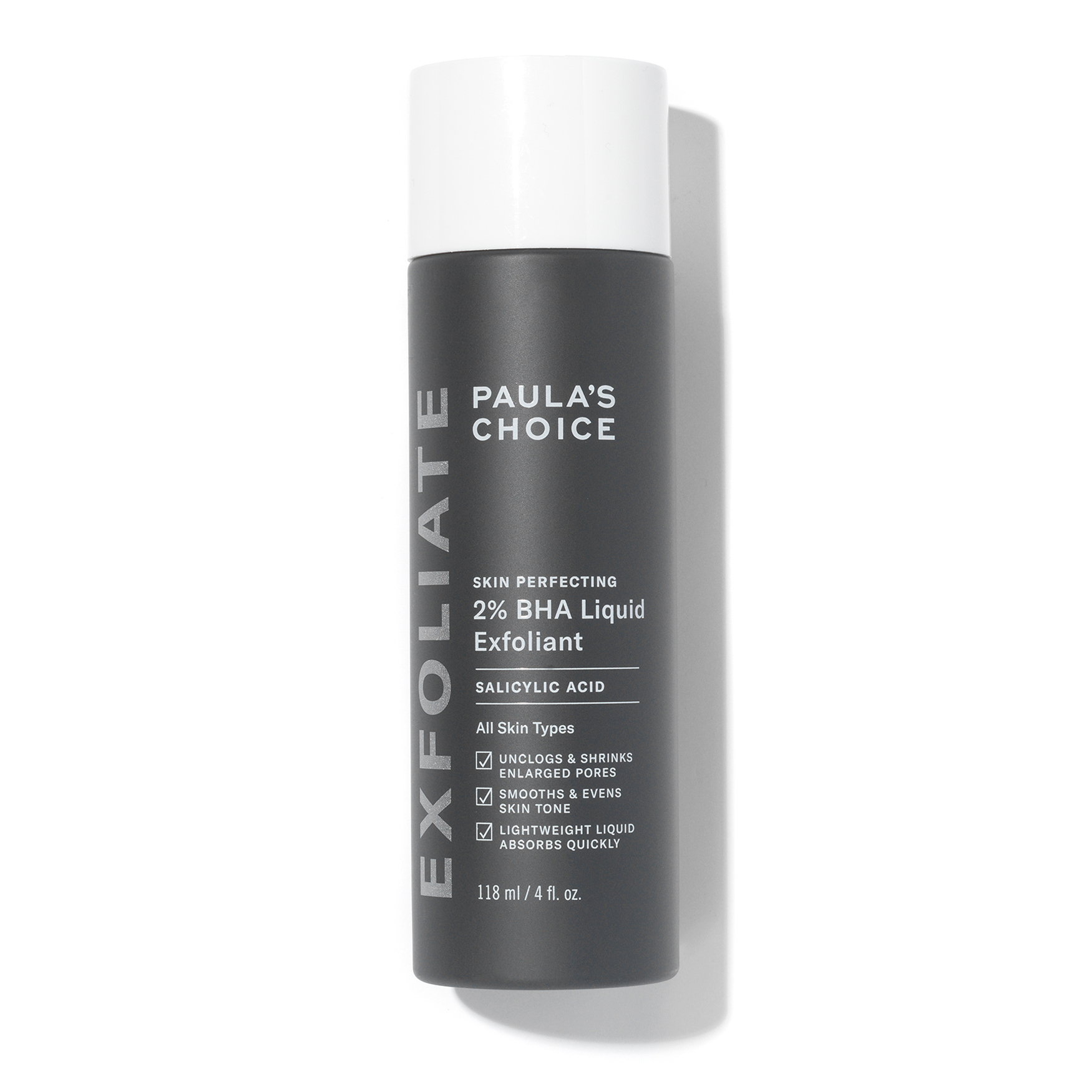This Is the Best Skincare Routine for Acne, According to a Dermatologist

It will come as no surprise to learn that I've always loved beauty products. As soon as I hit secondary school I'd spend my pocket money on magazines (Bliss, J-17, CosmoGirl—I'd buy them all) because I was totally obsessed with the beauty pages inside, especially the skincare tips.
You see, when you're dealing with acne as a teenager you become somewhat preoccupied with your complexion, and I was a teen on an acne-busting mission. Of course, being the early noughties, there wasn't the plethora of online information that there is now so I relied on magazines to educate me on which products would rid my skin of spots—and that meant a heck of a lot of Clearasil. Despite a lot of promising marketing jargon, nothing really worked.
As a teenager, your hormones are going haywire and, for me, acne is something that has stuck around into adulthood. In my late teens, I caved and asked my GP to put me on a brand of contraceptive pill that I'd heard could help to clear your skin up, but it still didn't have the miraculous results that I craved, merely keeping my blemishes to a manageable minimum. And by then, I had already been left with scarring and pigmentation due to some pretty intense breakouts in my younger years.
All this to say, if you have acne and are reading this piece, then I totally get it. There is a kind of fervour that comes with facing daily breakouts that can feel exhausting: constantly researching, seeking advice and spending money on new products that you hope will finally be the ones to make a difference to your skin. But it doesn't have to be that way. With over 150,000 posts on Instagram, the #skinpositivity hashtag is a celebration of skin in all its forms with people like Jenny Yu and Cydney showing that acne doesn't have to be covered up. As someone whose confidence has always been intrinsically linked to the state of my skin, the discovery has felt like a breath of fresh air.
So, while I can't promise that this skincare routine will rid your skin of acne entirely or transform your complexion overnight (and neither am I telling you that it should if you're more than happy with your skin as it is), I can promise you that it's more than just jargon. In fact, the entire routine is advised and approved by a woman who really knows her stuff, Anita Sturnham, MD, a GP specialising in skin health.
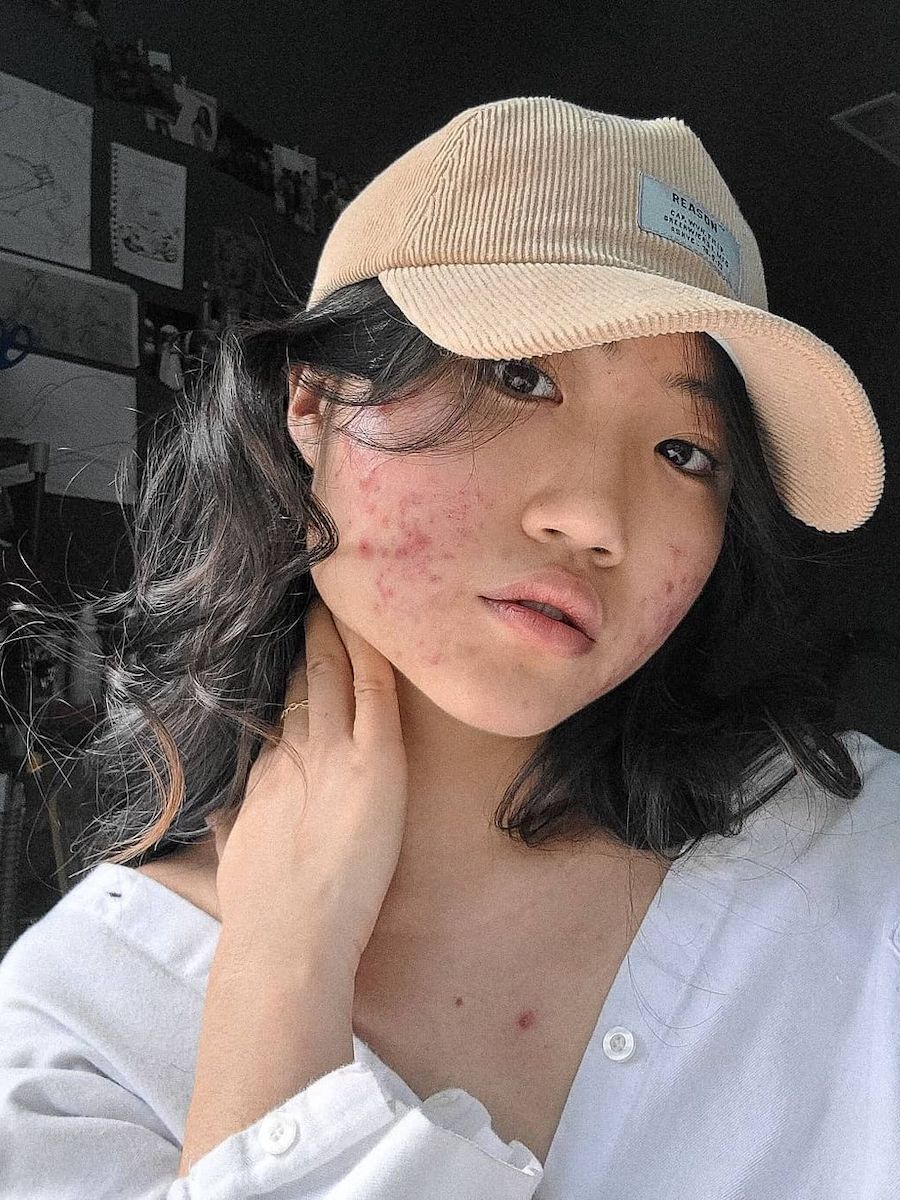
Before we get into the routine itself though, what actually causes acne? "In my experience, there is often a hormonal trigger, says Sturnham. "For teens, this can be due to the fluctuating hormones in puberty, and later in life, it's typically sex hormones or an adrenal hormone imbalance. We also know that acne and breakouts can be caused by pregnancy or hormonal medications being started or stopped, adrenal fatigue due to prolonged stress, lack of sleep, or putting the wrong things onto our skin. These trigger points can all add up and literally lead to mayhem in your skin."
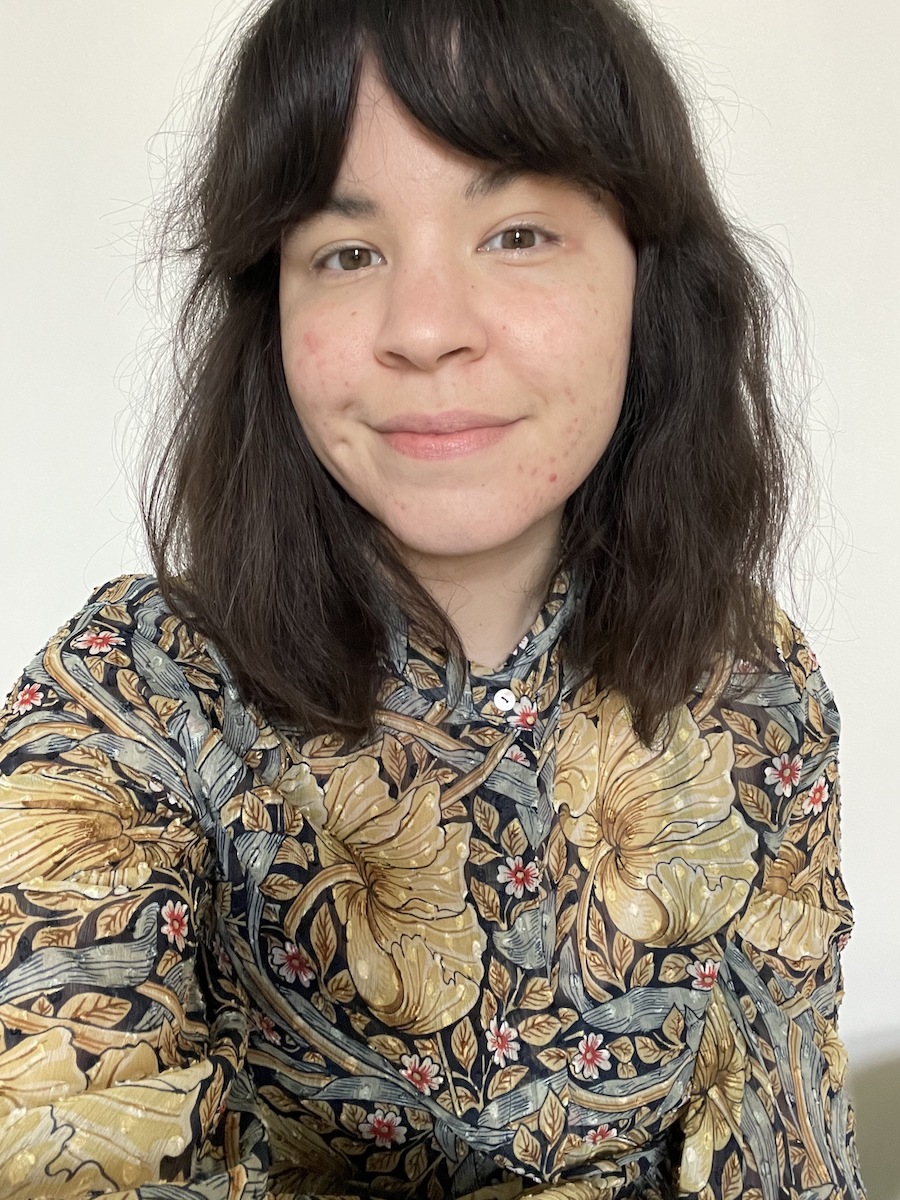
Of course, while acne is most commonly be caused by hormonal fluctuations, any of us that deal with blemishes will be well aware of the stigma that spots are caused by unclean skin. Even now, despite being in my 30s and working as a beauty editor with access to some of the best products that money can buy and a seriously good skincare routine, I still feel self-conscious whenever I go for a facial or need to be bare-faced before a makeup tutorial in case the expert that I'm with makes the assumption that I don't take care of my skin.
In fact, it's this quest for clean skin that Sturnham thinks could be detrimental for those of us caring for acne-prone skin at home: over-cleansing might actually be exacerbating our breakouts. "Many of my patients are using harsh cleansing products in an attempt to get clearer skin," explains Sturnham. "The issue with overdoing this step is that these products can strip your skin barrier, making the skin more prone to water loss through a process called transepidermal moisture loss. This sends a signal to your skin cells that it is dehydrated and it activates your sebaceous glands to produce extra sebum (the skin's natural oil), which makes the problem worse."
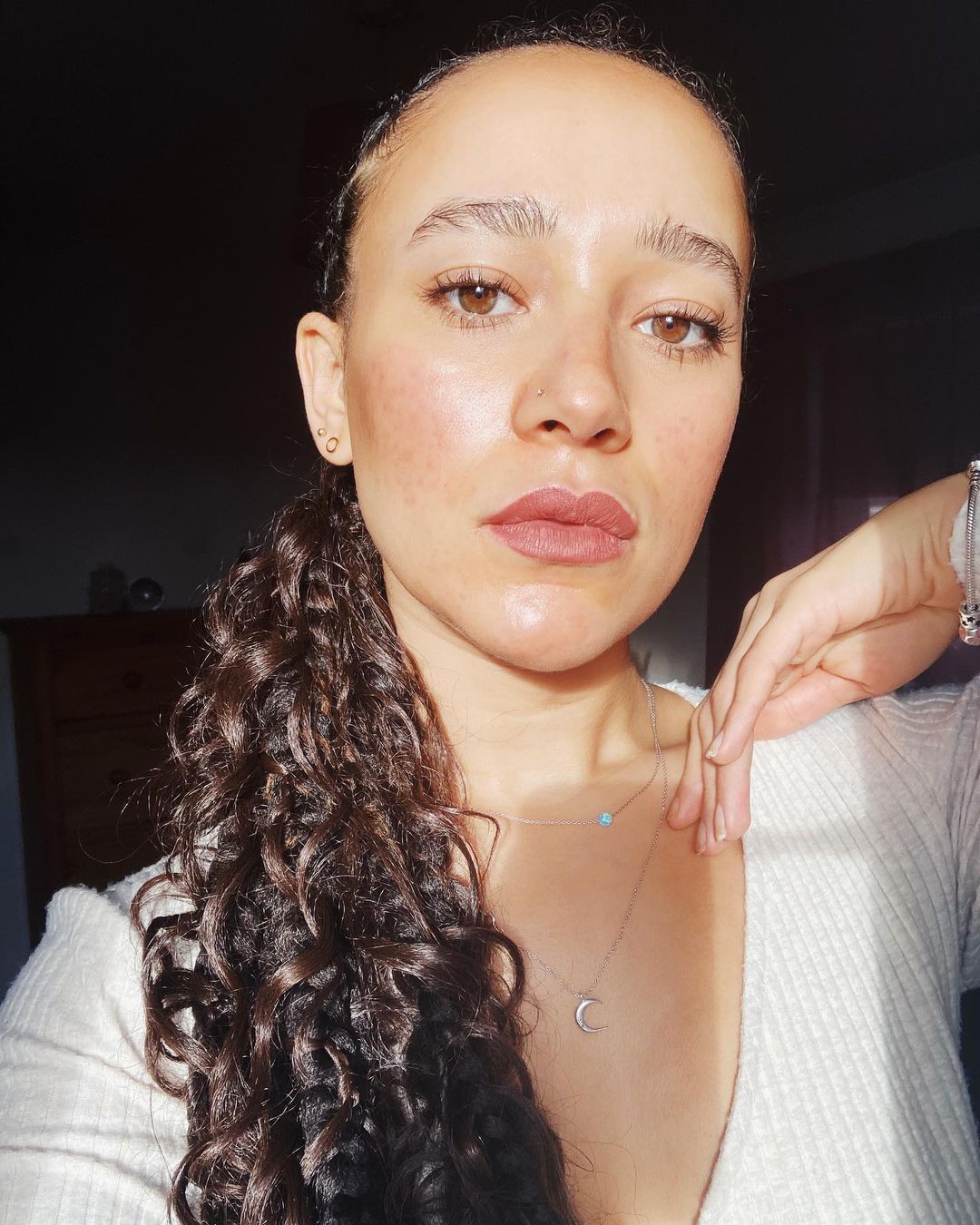
So, what is the best approach for looking after acne-prone skin? "The strategy starts with getting your skincare routine right," advises Sturnham.
Keep scrolling for her approved acne skincare routine for morning and night, then shop and some of my tried-and-tested products.
Morning skincare routine for acne-prone skin
Step #1: Cleanse
"Use a gentle cleanser to keep your skin looking fresh and radiant and try to avoid foaming cleansers that can strip the skin of its essential oils. Choose products which are non-comedogenic (they won't clog pores), and while breakouts are significant, look for ingredients like salicylic acid or lactic acid in a cream or gel formulation."
Step #2: Tone
"Use a rebalancing toner to restore your skin's natural pH levels, tighten your pores and prepare the skin for your active skincare treatments. This cleansing and toning regime will help with oil control and to unblock clogged pores, as well as prepare your skin so that your next step absorbs deeper and works more effectively."
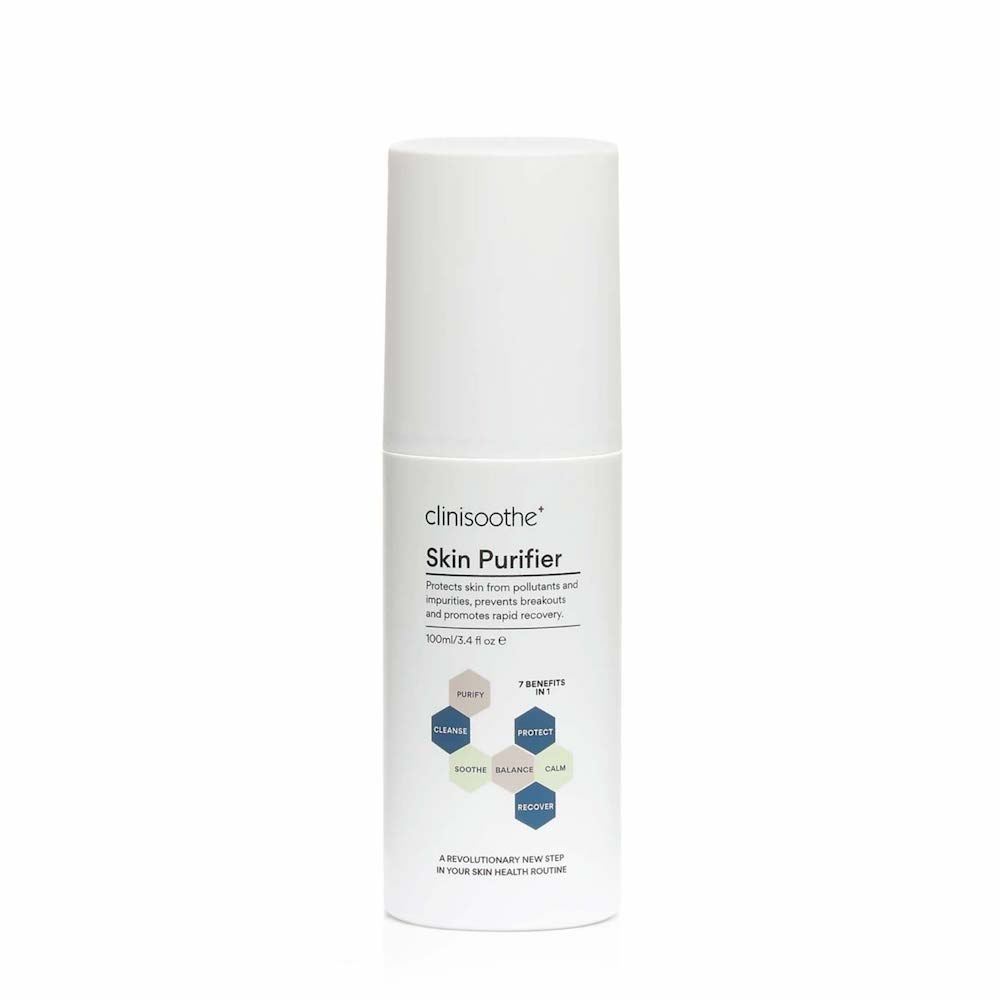
This neutralising mist comes highly recommended by both skin experts and beauty editors I know.
Step #3: Treat
"Typically, I will add a prescriptive item into the mix here, such as Duac—a prescription-only product that contains benzoyl peroxide and clindamycin. This dream duo works in synergy to dampen down inflammation. You will need to see your doctor for a prescription, but I highly recommend using this type of product in the acute phase. If skin is prone to dryness, I also recommend using a hydrating serum on top. Look for serums packed full of nourishing and hydrating ingredients but avoid oils, as these can clog your pores and make your breakouts worse. I recommend serums rich in hyaluronic acid and ingredients like zinc, magnesium and copper. Once breakouts are calmer, I'd suggest a serum that protects against environmental aggressors but also helps to reduce the inflammatory pigmentation, left behind after breakouts."
Step #4: Protect and Hydrate
"Finally, apply a protective, hydrating and non-pore clogging moisturiser over the top of your serum. This acts as a protective barrier for your skin and locks in moisture to keep the skin hydrated and its barriers strong. Whilst we know SPF protection is essential for prevention of UV damage and premature ageing, when it comes to acne skin, less is more. Skin is likely to purge and product overload won’t do your skin any favours so look for a mineral-based SPF which are generally more pore-friendly"
Evening skincare routine for acne-prone skin
Steps #1 and #2: Cleanse and Tone (as before)
Step #3: Serum
"Add in your retinoids here. Retinoids have been extensively studied for more than 30 years, and their collagen-building and acne-fighting properties are well documented. Adding in a retinoid serum helps to reduce pore inflammation, regulates sebaceous gland activity, speeds up cell repair and treats post inflammatory hyperpigmentation—the dark spots you are left when spots heal."
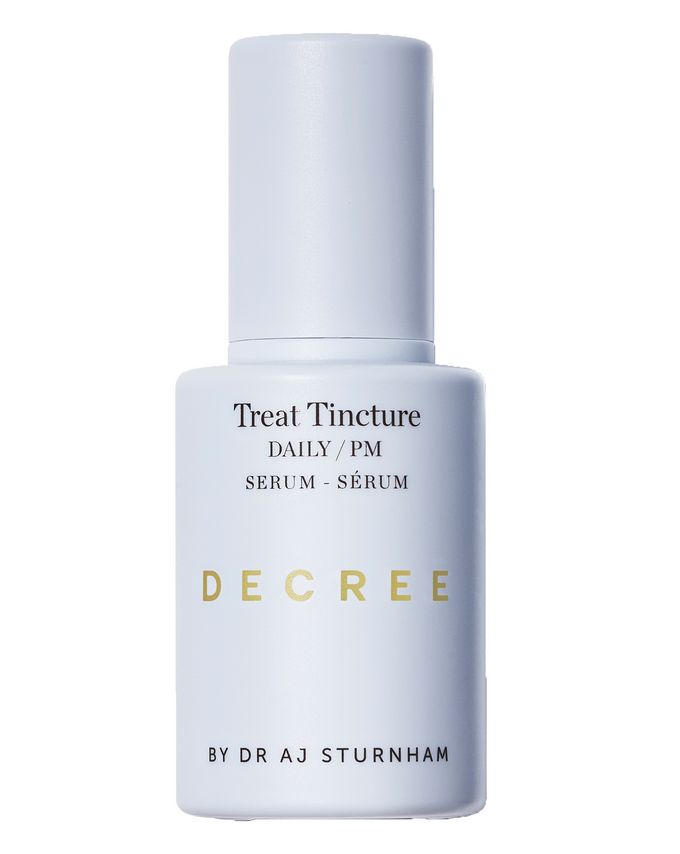
"In Decree Treat Tincture you get all the benefits of retinol without the downtime," explains Sturnham. "Thanks to the inclusion of next-generation granactive retinoid blended with pigment-stabilising alpha-arbutin to reduce the dark spots and swiss apple stem cells to aid cell repair. Plus, hyaluronic acid and squalane for epidermal barrier repair."
Step #4: Repair and Hydrate
"Often the morning moisturiser is adequate for acne sufferers, particularly if you're using a good serum underneath. Again, avoid heavily oil-loaded products and look for natural emollients such as safflower, jojoba, squalane. I also love using peptides and hyaluronic acid in an evening moisturiser."
Step #5: Exfoliate
"Once a week, use an exfoliator to remove dead skin cells from the top layers of the skin and encourage healthy new cells to reach the surface. This will give you a radiant complexion and reduce the risk of pesky skin cells clogging your pores. I recommend ingredients such as pyruvic acid, salicylic acid and lactic acid. However, avoid strong exfoliants if your skin is feeling sensitive or inflamed."
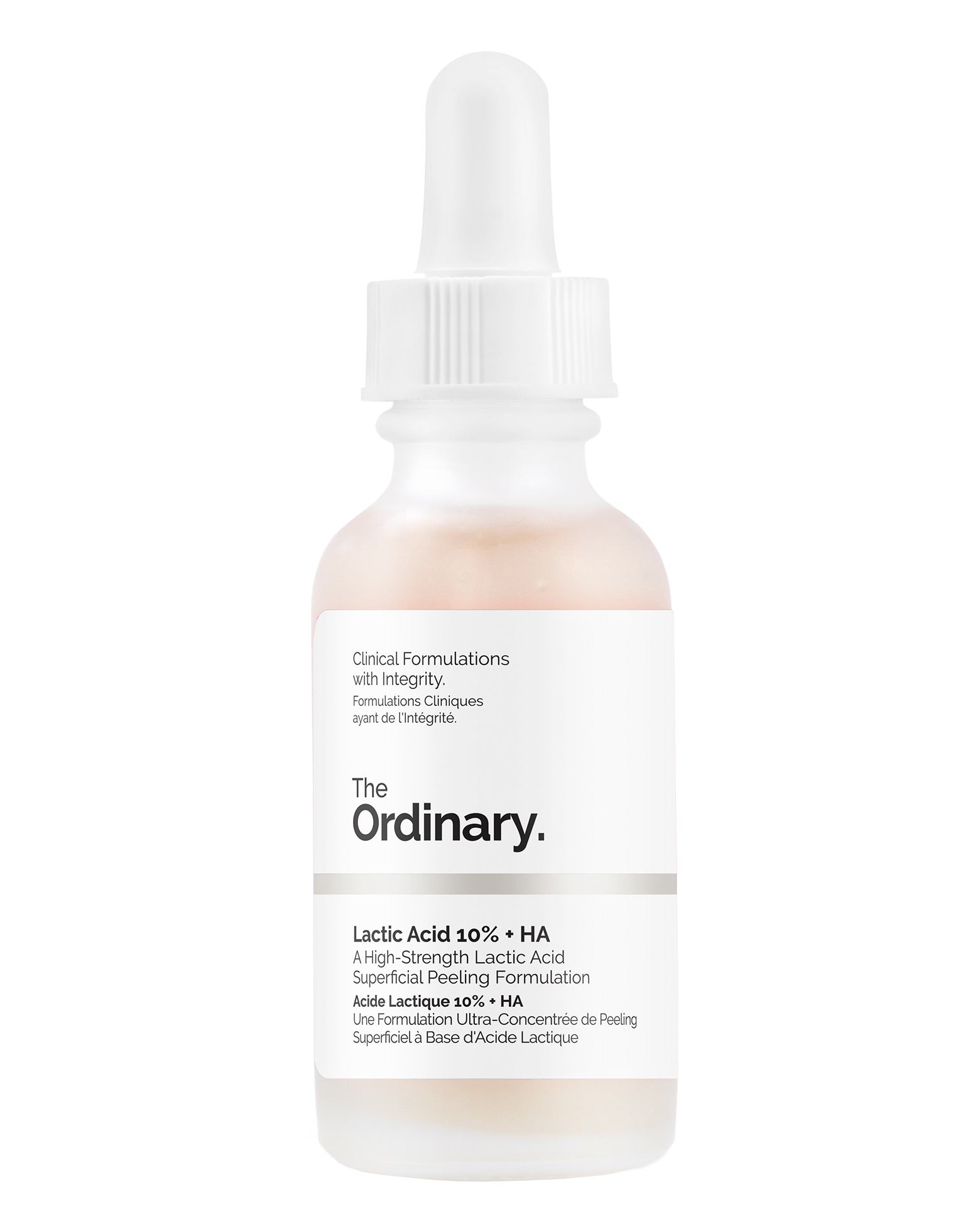
Another of my favourite exfoliators, this one uses lactic acid which I find so gentle on my skin. Plus, it has so many 5-star reviews.
Up next, these are the only three skincare ingredients experts say we actually need.
Mica Ricketts is a freelance beauty editor, copywriter and regular contributor toBest Knockoff Luxury Clothing UK. She also writes for titles including Marie Claire UK, Refinery 29 and Cosmopolitan, and previously worked atBest Knockoff Luxury Clothing UK as Beauty Editor. With experience in both editorial and content management, she also works with beauty brands and small businesses on brand messaging and content strategy. As a busy mum of two, she is passionate about finding efficacious beauty products that can disguise all signs of tiredness with minimal effort.
